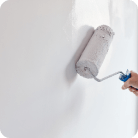What is Climate-Controlled Storage? 7 Things to Protect with Climate Control

Whether you’re in the market for your first storage unit or are considering an upgrade from your existing unit, you may be wondering what is climate-controlled storage and who needs it. The short answer is, it's protection you need for fragile items.
The long answer depends on a number of factors, including what you’re planning to store and where you live. Read on for more insight as to what climate-control storage is, and whether it’s right for you.
It’s important to understand that temperature fluctuations and heat can wreak havoc on any number of items, so think about what you’re planning to store. If your inventory includes anything of sentimental value or that might be sensitive to climate changes, a climate-controlled unit might be just what you need.
What is Climate Control?
Climate-controlled storage units, also called “temperature-controlled,” are typically heated or cooled by circulating air through a building at the storage facility.
The accepted industry standard for temperature-controlled units is between 55 and 85 degrees Fahrenheit year-round, which, barring a system failure, often effectively mitigates the damage from humidity or temperature extremes. Since climate-controlled units are part of a larger, enclosed structure, the overall humidity becomes similar to that of a home’s interior rather than that of the outside environment.
What Exactly is Humidity?
Simply put, humidity is concentrated water vapor in the air. The humidity level is relative to the temperature of the air. As the temperature increases, the air is capable of holding more water molecules, so the relative humidity decreases. When the air temperature falls, the relative humidity increases.
Humidity (or the lack of it) can cause certain materials to swell or contract, and excess moisture can lead to mold, mildew or other types of issues.
What Should be Stored in a Climate-Controlled Unit?
For the most part, climate control is considered a premium feature and its availability will vary by facility or, in some cases, the region. Areas with low humidity, like Colorado, might have a limited number of climate-controlled units available, while facilities in areas like Florida might have only climate-controlled units.
Below is a comprehensive list of items that typically do much better in climate-controlled units.
1) CDs, DVDs and Record Albums
Protect your music and movies! Any type of disc constructed of vinyl or plastic can be subject to cracking or warping in extreme temperatures. High temperatures can cause warping on vinyl records and cold temperatures can cause them to become brittle and chip or break. Avoid storing them horizontally or without the protection of CD or record sleeves, and keep them out of the direct light that can further weaken them.
2) Fabrics
Items made from fragile fabrics, such as a silk or tulle like you’d find in a wedding dress, should be stored in a climate-controlled unit after being wrapped in acid-free tissue paper. Other items made of delicate materials could include upholstered furniture and pillows, antique dolls, toys containing fabrics, curtains, linens and hats. High humidity can even cause sturdy fabrics to be subject to mold and mildew, effectively ruining them as well. If moth activity is a concern, place cedar balls or fabric-safe moth deterrents near the fabrics in a separate container or bag so they themselves don’t damage the material.
The same holds true for items like upholstered furniture or mattresses. First, remove all dirt, then treat with an antibacterial agent specifically designed for fabrics and let dry completely before storing. Lay mattresses flat without items on top that would depress the cushioning.
3) Fine Art and Framed Photographs
Extreme temperatures can cause fine art and paintings to crack, split, shrink or expand, and high humidity can prompt warping and the growth of mold and mildew. Framed photographs, even when under glass, can also be affected if condensation from high humidity collects under the glass.
4) Electronics, Metals and Appliances
High humidity can cause electronics such as stereos, speakers, computers and cameras to rust or corrode. Likewise, moisture will corrode items containing metal, including appliances, musical instruments and household fixtures.
If you must store electronics in a non-climate-controlled unit, ensure they’re well packed in a box surrounded by foam peanuts (original packaging is best), placed up off of the floor and stored near the back of the unit away from the door to help protect against temperature fluctuations that can damage them. Stacking other items on top of them is not advised, and neither is wrapping them in plastic which can trap humidity.
Before you store appliances, drain the hoses and any components that may have liquid or moisture in them to prevent mildew. Clean them thoroughly inside and out, allowing them to dry before storing.
5) Paper Goods
Items made of paper, including books, newspapers, documents and photographs, can yellow, fade or curl when exposed to extreme temperatures, high humidity or a light source. Humidity can especially affect paper items encased in plastic, such as comic books and collector’s items, prompting damage from the moisture collecting in the plastic.
6) Wooden Items
Since wood tends to contract with the cold and expand with the heat, storing wooden antiques, heirlooms or wooden furniture in a climate-controlled unit is advisable.
If you’re storing these items for extended periods, it’s also a good idea to clean and wax all wooden furniture components. Wrap them in sheets or drop cloths, then secure them with tape, ensuring that the tape isn’t applied to the wood itself. Use furniture pads to further protect the wood from damage.
7) Wine
Specialty wine storage facilities are becoming more common across the country. Wine storage is generally more expensive because wine collections are customarily higher in value than property stored in an average climate-controlled unit. Since the incorrect light, temperature and humidity can damage wine, the environment must have a low light level, hover around 55 degrees F and stay between 50 to 80% relative humidity.
What Can’t You Store?
There are also items that cannot be stored in a unit, whether it’s climate-controlled or not, such as fur coats, fuel or firearms. Keep in mind that other items may also be restricted by state or local laws, so be sure to check with your store manager if you’re not sure.
Tips to Protect your Property
Whether you’re storing in a temperature-controlled unit or a standard unit, follow these tips to ward off dampness in any unit you rent.
- Elevate any temperature- or humidity-sensitive property off the ground, using palates, shelves or other boxes that aren’t susceptible.
- Store your most sensitive items near the back, away from the door to avoid temperature and humidity fluctuations that may damage them. If you'd like to learn more, we have an entire post on organizing your storage unit.
- Promote airflow between your items by leaving space between them.
- Place moisture-absorbing products like silica gel packs around your unit to assist in dehumidification and damage prevention. Available in various forms such as buckets, refill granules and hanging packs, they also freshen the air.
The Wrap on "What is Climate-Controlled Storage?"
We answer questions like what is self storage, and offer answers for how to store clothes in storage units. For your convenience, we sell furniture and mattress covers, bubble wrap, boxes, tape, dehumidifying agents, and more in our facility offices. Just call or come by and we’ll help you find what you need to make your storage experience a success!
Find the Store Space location nearest you with our storage location finder.






